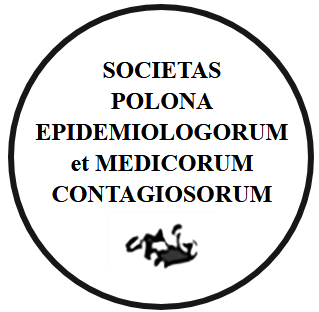ABSTRACT
INTRODUCTION AND AIM OF THE STUDY. Vitamin D deficiency is a common problem in Poland and worldwide. In the light of recent epidemiological studies, D hypovitaminosis causes not only skeletal diseases, but also other chronic diseases such as immunodeficiency or some types of cancer. The proper knowledge can significantly determine pro-health behaviour, therefore the aim of the study was to analyse the knowledge, opinion and social behaviour regarding vitamin D.
MATERIAL AND METHODS. The survey was conducted among 300 Silesian Voivodeship inhabitants (178 women and 122 men) using an anonymous survey containing 40 questions.
RESULTS. 59% of people were aware of solar radiation, as a main source of vitamin D in the human body.
Sea fish, as the main dietary vitamin D source, were known to 58% of respondents. The highest number of indications (67%) had dairy products, which are poor sources of cholecalciferol. 37% of people were aware that even a well-balanced diet was not able to provide the required daily dose of vitamin D. 78% of people in the study group were aware of the calcaemic effect of vitamin D. Only 9% of respondents were aware of the safe amount of daily sun exposure, sufficient for vitamin D synthesis, while 69% indicated periods of time longer than recommended. 76% of the respondents showed a positive attitude to sun exposure. Taking vitamin D supplementation was declared by 45% of the study participants, while a serum 25(OH)D level was tested only by 6.5% of the respondents.
CONCLUSIONS. Insufficient knowledge about the vitamin D sources among the Silesian Voivodeship inhabitants, misconceptions about the possibility to reach adequate blood levels through the diet, and at the same time low consumption of products rich in vitamin D and its supplements, may be the causes of vitamin D deficiencies.
STRESZCZENIE
WPROWADZENIE I CEL. Niedobór witaminy D jest problemem powszechnym w Polsce i na świecie. W świetle ostatnich badań epidemiologicznych hipowitaminoza D jest przyczyną nie tylko schorzeń układu kostnego, ale również innych chorób przewlekłych takich jak niedobory odporności, czy też niektóre typy nowotworów. Stan wiedzy może w istotny sposób determinować zachowania prozdrowotne, dlatego celem pracy była analiza wiedzy, opinii i zachowań społecznych dotyczących witaminy D.
MATERIAŁ I METODY. Badanie przeprowadzono wśród 300 mieszkańców (178 kobiet i 122 mężczyzn) województwa śląskiego przy użyciu anonimowej ankiety zawierającej 40 pytań.
WYNIKI. O głównym źródle witaminy D, jakim jest promieniowanie słoneczne, wiedziało 59% osób. Główne źródło dietetyczne, jakim są ryby morskie, znało 58% ankietowanych. Największą liczbę wskazań (67%) miał nabiał, źródło o znikomej zawartości cholekalcyferolu. 37% osób wiedziało, że dobrze zbilansowana dieta nie zapewnia dobowego zapotrzebowania na witaminę D. 78% osób w grupie znało funkcje kalcemiczne witaminy D. Zaledwie 9% ankietowanych znało bezpieczny czas ekspozycji słonecznej, niezbędny do syntezy zalecanej ilości witaminy D, podczas gdy 69% podało czas dłuższy od rekomendowanego. 76% respondentów wykazywało pozytywne nastawienie do przebywania na słońcu. Stosowanie suplementów witaminy D zadeklarowało 45% uczestników badania, natomiast badanie stężenia 25(OH)D w surowicy przeprowadziło zaledwie 6,5% ankietowanych.
WNIOSKI. Występująca wśród mieszkańców województwa śląskiego niedostateczna wiedza o źródłach witaminy D, błędne przekonanie o możliwości zapewnienia dobowego zapotrzebowania poprzez dietę, jak również niskie spożycie produktów bogatych w witaminę D i jej suplementów, mogą stanowić przyczynę niedoboru witaminy D.
You can change cookies settings in your browser. Restricted use of cookies in the browser configuration may affect some functionalities of the website.





